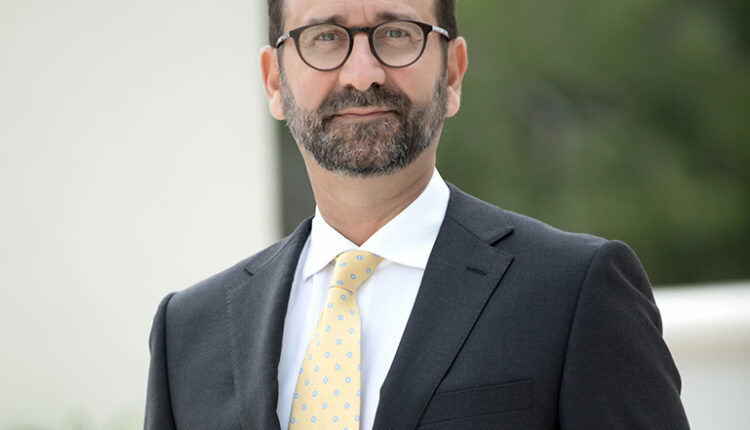Africa Must Be a Trusted, Global Energy Partner
By Mike Ehrenstein
This summer, London suffered one of the worst heat waves in a century. I know because my daughter, who studies fashion there, shared stories about the extreme heat. People sweltered on the train. London’s humidity and the record heat combined in her flat to create a steam room. My best advice to her: hydrate now and enjoy the heat while you can, because come winter, she and her friends will be praying for its return.
The fallout from Russia’s invasion of Ukraine destabilized the United Kingdom’s (and Western Europe’s) fuel supplies. The war dramatically increased prices at the pump, ramped up energy bills and will further disrupt their quality of life. Already, the Office of Gas and Electricity Markets (Ofgem), the United Kingdom’s energy regulator, increased the price cap on U.K. gas and electricity rate increases by 54% in April, the largest-such annual increase since 1970. Experts anticipate further increases when the agency revisits the rate cap this month. Meanwhile, some European countries with less developed energy infrastructures will face a harsh winter without sufficient fuel to reliably provide needed heat.
It is easy to blame the West’s current energy struggles on Russia’s invasion and the sanctions it triggered, including boycotting Russian fuel. However, Western European leaders are also responsible. They failed to adequately diversify their fuel supply and became dependent on Russian deliveries.
For example, in the two years leading up to the invasion of Ukraine, European nations imported about two-thirds of Russia’s oil exports, according to the International Energy Agency. Last year, the European Union imported 2.2 million barrels of crude oil per day from Russia, along with 0.7 million barrels per day via pipelines. Russia’s Baltic pipeline, Nordstream 1, typically accounts for about a third of all Russian gas exports to Europe. Last month, Russia cut the pipeline’s deliveries to a mere fifth of its total capacity. It should be no surprise that the West’s failure to adequately diversify its fuel supply will likely cause further harm this winter.
A glimmer of hope shimmers amidst the warfare and political turmoil — and it lies in Africa. Western Europe needs a new, reliable energy partner. Europe should look south. Long overlooked and underestimated by the West, Africa is a continent with enormous resources, a young and eager workforce, and unlimited potential.
From strategic pawn to strategic partner
For too long, world powers carved Africa into spheres of influence to support their geopolitical goals. For example, China played — and continues to play — Africa as a strategic pawn, using its status as the continent’s leading provider of developmental finance to control one-fifth of all lending to African countries. In opaque deals, China collateralizes that debt with Africa’s resources and infrastructure. Russia, too, has molded African interests to its own needs behind the scenes, supporting its ruling elites to maintain substantial footholds in resource-rich regions. At the same time, European nations have stalled, offering capitalistic platitudes but paltry investments.
But Africa is more than a pawn on a global diplomatic chessboard. Russia’s war and Europe’s painful weaning from Russian fuel reliance should encourage realistic and fresh investment into energy trade between Europe and Africa. With appropriate investment, the continent can be well positioned as a reliable energy exporter — further diversifying the global fuel market and providing additional energy security to Europe. Consider, as The Energy Republic reported in its May-June 2022 issue, that Africa sits on an estimated 600 trillion gallons of proven LNG reserves, all available for extraction and delivery.
It is beyond time for Western leaders to recognize that Africa offers a realistic solution to its present energy crisis — a crisis that will get far worse in winter without Africa contributing its fuel to the European energy diet.
Impediments and incentives to Africa acting as a global energy partner
Plagued by colonial history, Western Europe will face an uphill climb in earning Africa’s trust — especially as Russia holds hostage the Ukrainian grain and other resources essential to many African economies. Look no further than the breakdown of the U.N. General Assembly’s March 2022 vote on a resolution to condemn Russia’s invasion of Ukraine. Of the 35 countries that abstained from voting, 17 were from Africa. One African country, Eritrea, even voted against the resolution.
Nevertheless, Western Europe should continue pursuing productive dealmaking with the continent. We have already seen progress on this front from France and Italy. France’s €3.6 billion investments in 2020 shored up social services and infrastructure needs on the continent, especially in Francophone nations. Meanwhile, Italian energy conglomerate ENI plans to invest in Sonatrach, Algeria’s state-owned energy company, to pursue more sustainable supplies and new oil field extraction opportunities. Certainly, with more agreements like these, Europe can obtain the fuel it needs.
More importantly, Europe can build trusting and reliable relationships with African producers. If they are genuine, those relationships will benefit Africans and Europeans alike well after the present crisis has passed.
Africa controls its energy future. The present energy crisis highlights the potential for Africa to emerge as a global energy partner. The continent offers plentiful resources and the desire to share its gifts with the world. Western Europe must look to Africa for energy development now.
About The Author
Michael Ehrenstein is a U.S.-based trial attorney, founder of the international business litigation boutique Ehrenstein|Sager, and the 2022 president of the Litigation Counsel of America.
He has more than 30 years of legal experience, including representing nations such as the Republic of Angola in sovereign immunity cases related to their commercial activities.



